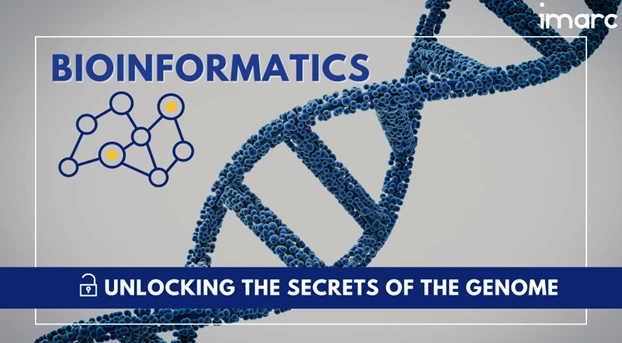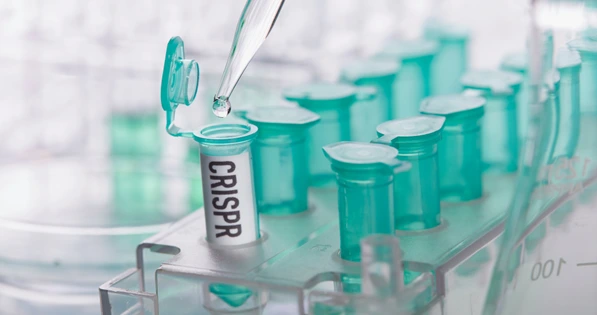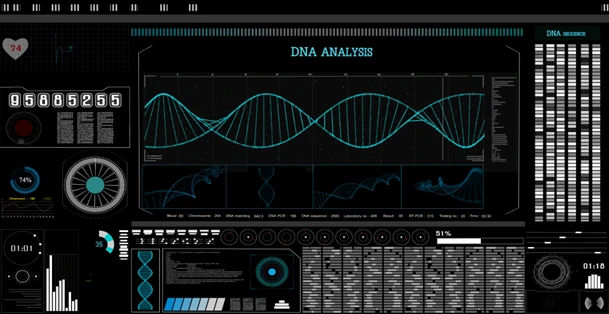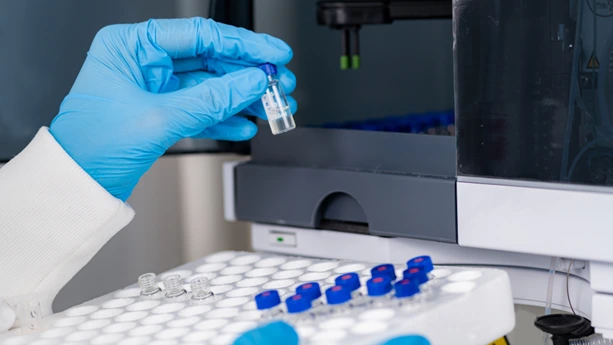Bioinformatics: Unlocking the Secrets of the Genome

Bioinformatics involves applying computational techniques and tools to study and understand biological systems at the molecular level. It is a field of study that combines mathematics, biology, computer science, and statistics to research genomic data and biological networks. The goal is to interpret information from large biological data sets, such as DNA sequences, protein structures, gene expressions, and other high-throughput experimental data. This field provides various products and services, such as knowledge management tools, bioinformatics platforms, and services. Bioinformatics' knowledge management tools are widely used to store, analyze, and interpret biological data and information. The bioinformatics platform is an integrated software system that serves various bioinformatics applications, databases, algorithms, and data analysis workflows. It is also used to handle biological data, such as DNA sequences, protein structures, and gene expressions. Examples of bioinformatics platforms include surgical simulation platforms, sequence analysis platforms, alignment and manipulation platforms, and structural and functional analysis platforms. Data analysis and database management are the primary services offered by bioinformatics. The field has many applications, such as genomics, cheminformatics, drug design, proteomics, transcriptomics, and metabolomics. Bioinformatics tools, platforms, and services find applications in various sectors, including medical biotechnology, academic biotechnology, animal biotechnology, agricultural biotechnology, environmental biotechnology, and forensic biotechnology.
Revolutionizing Healthcare: Bioinformatics Leads the Way
According to a study by IMARC, the global bioinformatics market is expected to reach US$ 23.8 Billion by 2028. The demand for bioinformatics has increased substantially over time. Various factors contributing to the market's growth are outlined below:
Biotechnology Advancements: The technological advancements in bioinformatics, such as gene editing technologies (like CRISPR-Cas9), synthetic biology, and high-throughput screening, as well as the integration of artificial intelligence (AI), machine learning (ML), and big data technology, have enhanced the efficiency and accuracy of analyses and accelerated research and development (R&D) in biotechnology.

Advancements in Genomics: Biotechnology entirely depends on genomics data, and the continued advancements in DNA sequencing technologies have led to a massive explosion of genetic data and a surge in the demand for bioinformatics tools and algorithms to process, analyze, and interpret the data effectively.

Rising Demand for Personalized Medicines: Bioinformatics plays a crucial role in the advancement of personalized medicines by understanding genetic data, identifying disease-associated genes, and predicting treatment responses. Apart from this, it is used to identify genetic variants that may affect drug metabolism, efficacy, or adverse reactions. This data provides a comprehensive understanding of a patient's health status and helps in the development of more personalized treatment plans. Therefore, the shift toward personalized medicine has increased the demand for bioinformatics.

Increasing Capital Investment: Biotechnology companies, academic institutions, and governments of various nations are heavily invested in developing bioinformatics solutions and helping grow startups and emerging biotech companies working on cutting-edge technologies and therapies.

Drug Discovery and Development: Bioinformatics is used in various drug discovery processes, such as identifying potential drug targets, predicting drug side effects, simulating drug-protein interactions, optimizing drug candidates, and designing new compounds. The growing demand for cost-effective drug development drives the bioinformatics market.

The COVID-19 pandemic has also highlighted the importance of bioinformatics in public health and epidemiological studies. It helps in understanding pathogens' genetic makeup, tracking disease spread, and identifying potential drug targets. Therefore, key players such as ABM Industries, Agilent Technologies, Biomax Informatics, Data4Cure Inc., Dnastar Inc., and Illumina Inc, are heavily investing in developing more efficient and cost-effective bioinformatics tools and software.
Latest Headlines
- Agilent Technology has collaborated with Theragen Bio in South Korea to boost precision oncology through advancing bioinformatics (BI) solutions. They will combine their strengths in cancer genomic profiling (CGP) design, engineering knowledge, and software expertise to drive localized analysis capabilities and accelerate treatment decisions.
- Qiagen N.V has launched an upgraded product for ultra-fast Next-Generation Sequence analysis, capable of processing a whole genome in 25 minutes for $1 in cloud computing costs.
- Illumina Inc. has announced the new Primate AI-3D, an artificial intelligence (AI) algorithm that accurately predicts disease-causing genetic mutations in patients.
- Agilent Technology has leveraged NVIDIA and AWS technology to improve the analysis speeds of genomics bioinformatics pipelines.
The Promising Future of Bioinformatics
Bioinformatics plays a vital role in agriculture by providing valuable insights and data analysis techniques for optimizing crop production and management. It helps analyze plant genomes, identifying genes responsible for desirable traits such as drought resistance, disease resistance, and improved yield. Apart from this, it also helps manage soil health and detect pests and diseases. The application of bioinformatics in agricultural research is increasing rapidly. Therefore, the rising demand for bioinformatics in precision farming will drive the market toward growth significantly in the forecasted period.
The increasing chronic disease among the ageing population has facilitated the demand for innovative biotech solutions in diagnostics, therapeutics, and regenerative medicine. Moreover, the rising demand for biopharmaceuticals, including monoclonal antibodies, vaccines, and recombinant proteins, will surge the demand for bioinformatics in the market.
In addition to that, bioinformatics integrates data from different domains, such as genomics, transcriptomics, proteomics, and metabolomics, thereby providing a more comprehensive understanding of biological systems. The rising demand for bioinformatics in various sectors, such as agriculture, academics, synthetic biology, biopharmaceuticals, and forensics, will likely boost the market growth.
Impactful Insights: Elevate Your Knowledge with IMARC's Unparalleled Expertise
Companies must set goals to develop new and innovative bioinformatics tools and software. They must analyze their existing product and identify the areas for advancements to provide a better user experience. The analysis of competitors’ business strategies and innovation of products is also an essential parameter for developing unique and featured products.
At IMARC Group, we specialize in assisting companies through market research to identify the latest trends, business strategies, and product opportunities. We assist organizations in the bioinformatics market in finding their industry trends, patent analysis, conference and webinar material, target audience, their preferences, and creating powerful marketing plans. We can assist by providing information on new product launches, innovations, and recent trends and developments. We help businesses position themselves for long-term success and growth.
Our Clients
Contact Us
Have a question or need assistance?
Please complete the form with your inquiry or reach out to us at
Phone Number
+91-120-433-0800+1-201-971-6302
+44-753-714-6104










